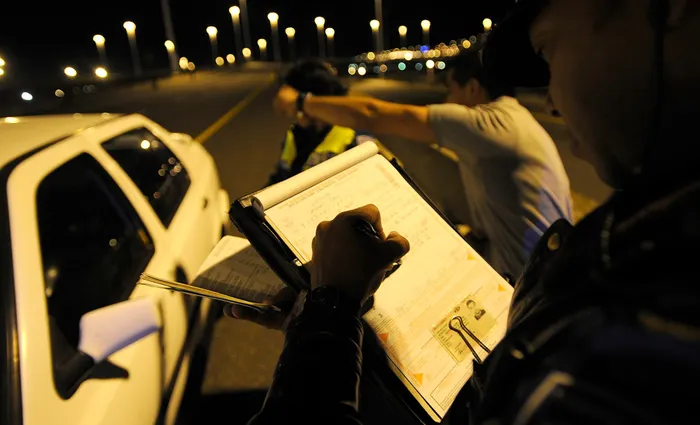Three defects and you’re off the road: JMPD threatens to get tough on unroadworthy vehicles

Defective vehicles will be removed from the road, the JMPD says. File picture: Matthew Jordaan / Independent Media.
The Johannesburg Metro Police Department (JMPD) is threatening to come down hard on motorists driving around with unroadworthy vehicles.
The JMPD said in a social media post that any vehicle found with three or more defects will be taken off the road.
“Any vehicle that is found with 3x or more defects will be discontinued by #JMPD officers from operating on the public road. This includes engine oil leaking, rear brakes, worn-out out tyres, cracked windscreen & indicators not working, etc. Compliance is not negotiable!” the JMPD said on X.
Any vehicle that is found with 3x or more defects will be discontinued by #JMPD officers from operating on the public road. This includes engine oil leaking, rear brakes, worn-out out tyres, cracked windscreen & indicators not working, etc. Compliance is not negotiable! pic.twitter.com/krskFiNOmp
— Jo'burg Metro Police Department - JMPD (@JoburgMPD) October 2, 2024
Section 42 of the National Road Traffic Act states: “No person shall operate a motor vehicle which is not in a roadworthy condition on a public road.”
But it’s also important that motorists understand their rights.
Roadblocks are regulated by Section 13(8) of the South African Police Service Act. Among other things it stipulates that officers conducting a roadblock or roadside check may issue a notice to “discontinue” a vehicle if it is suspected of being unroadworthy or impound it if it is “clearly unroadworthy”. However, officials may not discontinue or impound a vehicle without “reasonable grounds”.
ALSO READ: Know your rights at a roadblock
As a reminder, the Act also states that law enforcement officials may not force motorists to pay their traffic fines at the roadside, even if payment facilities exist there.
A risk to life and limb
Defective vehicles are a major concern on South Africa’s roads.
According to Hippo Insurance, around 15% of all accidents are caused by vehicle defects and mechanical failures, including burst tyres, smooth tyres, faulty and dirty brakes, defective steering, headlights or indicators, cracked windscreen and worn windscreen wipers.
Many social media users responded with disdain to the JMPD’s ‘three strike’ threat, with some respondents on X stating that windscreen cracks are caused by South Africa’s “badly maintained roads”.
Legally speaking, cracked windscreens are something of a grey area. According to Arrive Alive, it is not illegal to drive a car with a cracked windscreen, as long as the driver’s view is not obscured.
But just because you can, doesn’t mean you should. Road safety is a collective responsibility and it is up to everybody to ensure that the risks are minimised. This includes driving with smooth tyres, which can be a hazard in the wet, or with damaged tyres that, for instance, have bubbles caused by potholes, as this could lead to a blowout at high speed.
IOL
Related Topics: